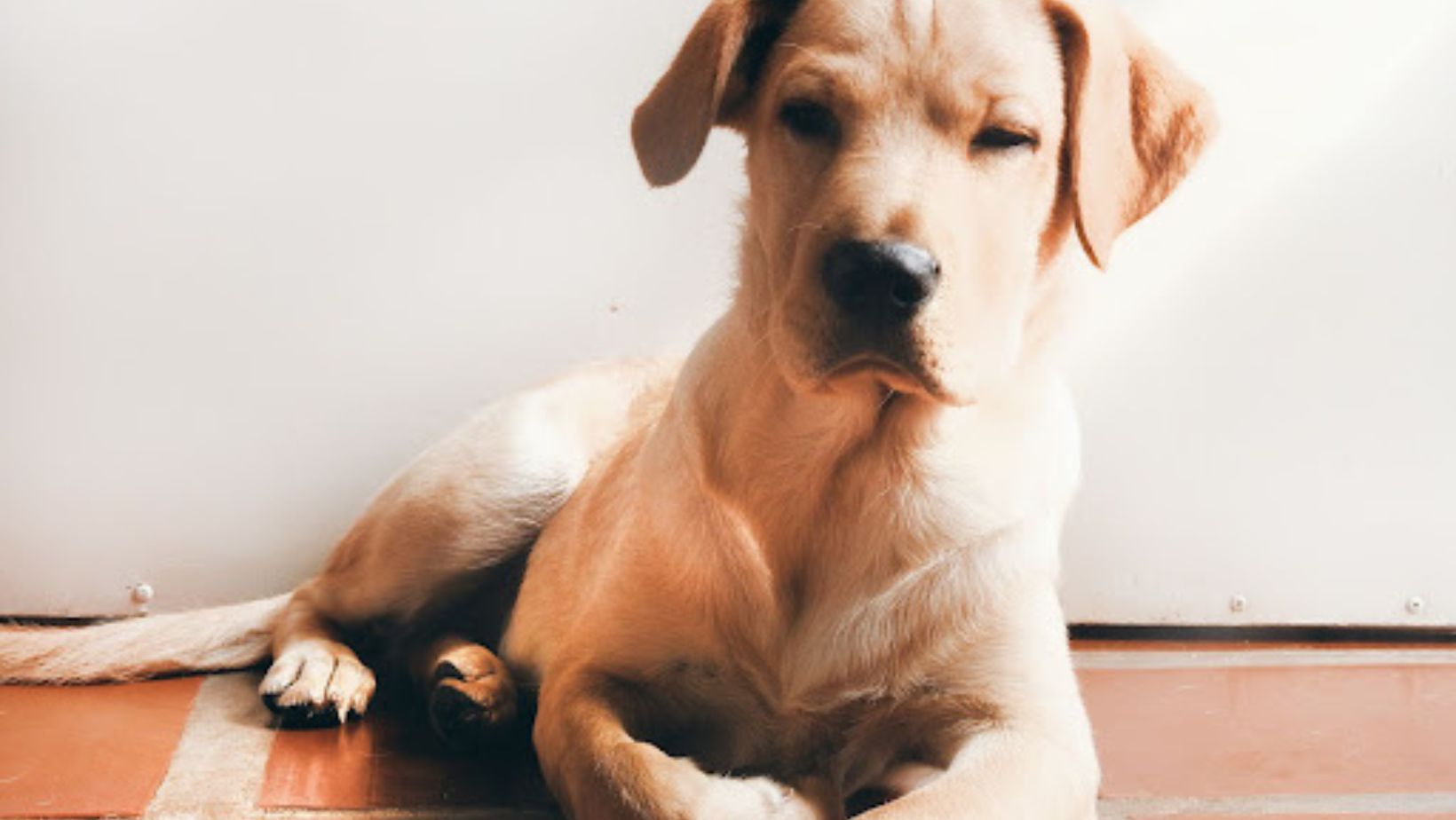How to Calm a Puppy Down
Are you struggling to calm down your energetic Labrador puppy? In this article, I’ll answer some frequently asked questions about calming Labradors and share effective techniques to help you soothe your furry friend. Whether you’re dealing with a hyperactive pup or simply want to create a more peaceful environment, these tips will come in handy.
One common question that arises is, “How can I calm my Labrador puppy down?” The key lies in providing them with plenty of physical and mental stimulation. Labradors are known for their high energy levels, so it’s important to engage them in regular exercise and playtime. A tired puppy is usually a calmer one! Consider taking your Labrador for daily walks, playing fetch, or engaging in interactive games like puzzle toys. These activities not only tire them out but also provide mental stimulation that can help keep them relaxed.
Another frequently asked question is, “Are there any relaxation techniques specifically designed for Labradors?” Absolutely! One effective technique is teaching your puppy basic obedience commands such as sit, stay, and lie down. This not only helps establish boundaries but also provides structure and guidance that can promote calmness. Additionally, incorporating positive reinforcement training methods can work wonders with Labradors. Rewarding good behavior with treats or praise helps reinforce desired behaviors while reducing anxiety or excitability.
By implementing these techniques and understanding the unique needs of your Labrador puppy, you’ll be well on your way to creating a calmer and happier environment for both of you. Stay tuned as I delve deeper into each of these topics throughout the article.
Remember, every dog is different, so it may take some trial and error to find what works best for your specific Labrador pup. With patience, consistency, and lots of love, you’ll soon discover effective ways to calm down even the most energetic furry friend!

Why is my puppy so hyperactive?
Puppies are known for their boundless energy and exuberance, but sometimes it can feel like your little fur ball has an endless supply of enthusiasm. If you find yourself wondering why your puppy is so hyperactive, here are a few possible reasons:
- Breed characteristics: Certain breeds, like Labradors, are naturally more active and energetic than others. These breeds were originally bred for jobs that require high levels of physical activity, such as hunting or working on farms. So, if you have a Labrador puppy, it’s not uncommon for them to have an extra dose of energy.
- Age: Puppies go through different developmental stages, and during some of these stages, they may exhibit increased hyperactivity. For example, during the “puppy zoomies” phase, usually in the evening or after a nap, puppies may suddenly burst into bouts of frenzied running and playing.
- Lack of exercise: Just like humans, dogs need regular exercise to burn off excess energy and stay mentally stimulated. If your puppy isn’t getting enough physical activity throughout the day, they may become restless and hyperactive as a result.
- Boredom: Puppies are curious creatures who thrive on mental stimulation and engagement with their environment. When left alone for long periods without any toys or activities to occupy their minds, they may resort to excessive playfulness or destructive behavior out of boredom.
- Lack of training: Proper training plays a crucial role in shaping a puppy’s behavior as they grow up. Without consistent boundaries and guidance from their owners, puppies may struggle to understand what is expected of them and may resort to hyperactive behaviors as a way to seek attention or release pent-up energy.
- Stress or anxiety: Like humans, dogs can experience stress or anxiety too. Changes in routine, unfamiliar environments, or separation from their owners can trigger hyperactive behavior in some puppies. It’s important to provide a calm and secure environment for your puppy to help them feel more at ease.
Remember that each puppy is unique, and what may be considered hyperactivity in one dog might be within the normal range for another. However, if you’re concerned about your puppy’s behavior or find that their hyperactivity is interfering with their daily life or training, it’s always a good idea to consult with a veterinarian or professional dog trainer for guidance.